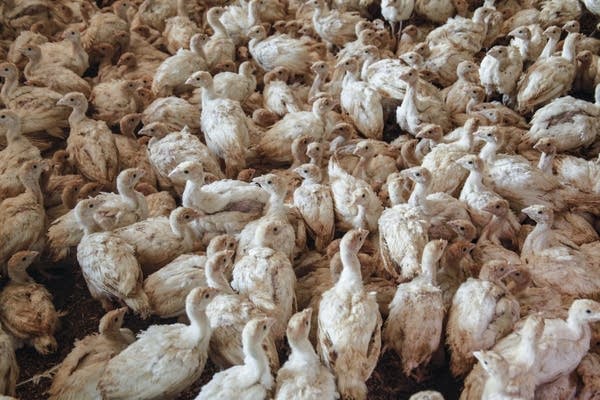Mexico buys a lot of Minnesota turkeys -- a border closure could change that

Turkeys congregate at a farm in Northfield, Minn., on July 14, 2017.
Maria Alejandra Cardona | MPR News 2017
Go Deeper.
Create an account or log in to save stories.
Like this?
Thanks for liking this story! We have added it to a list of your favorite stories.


